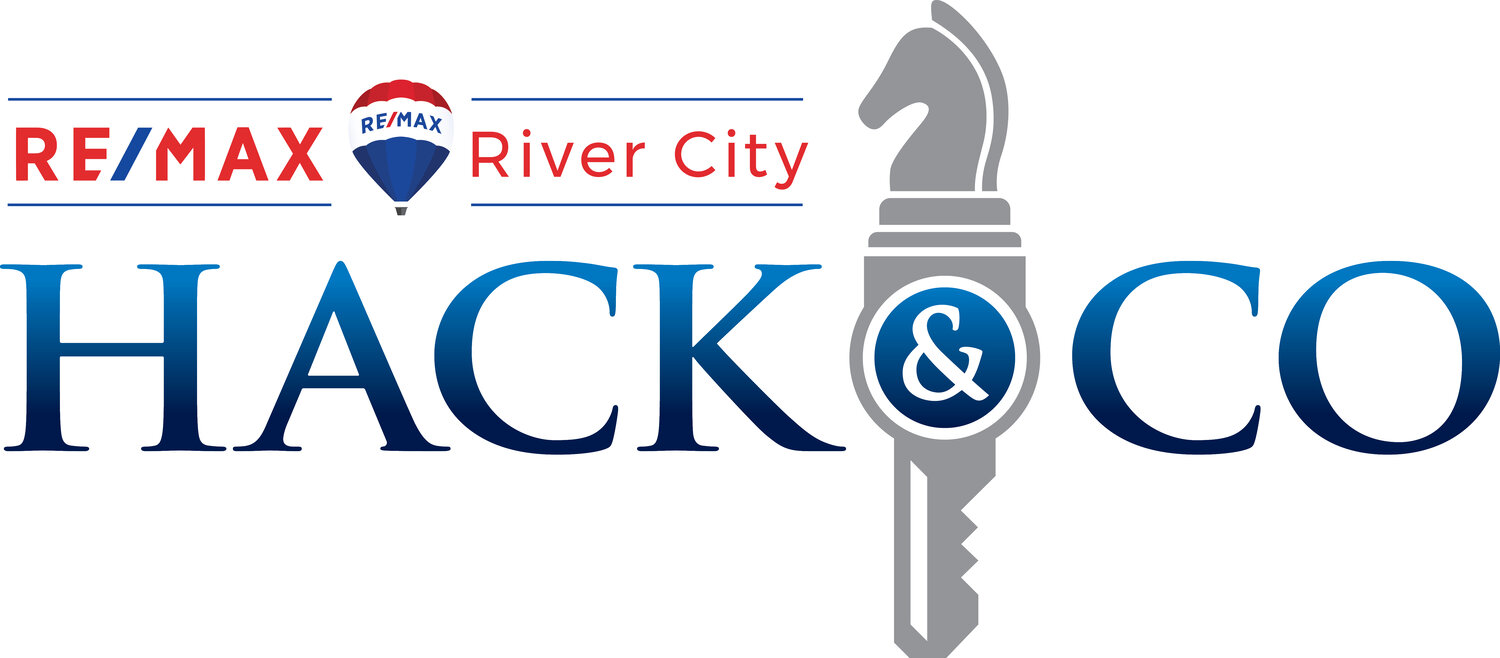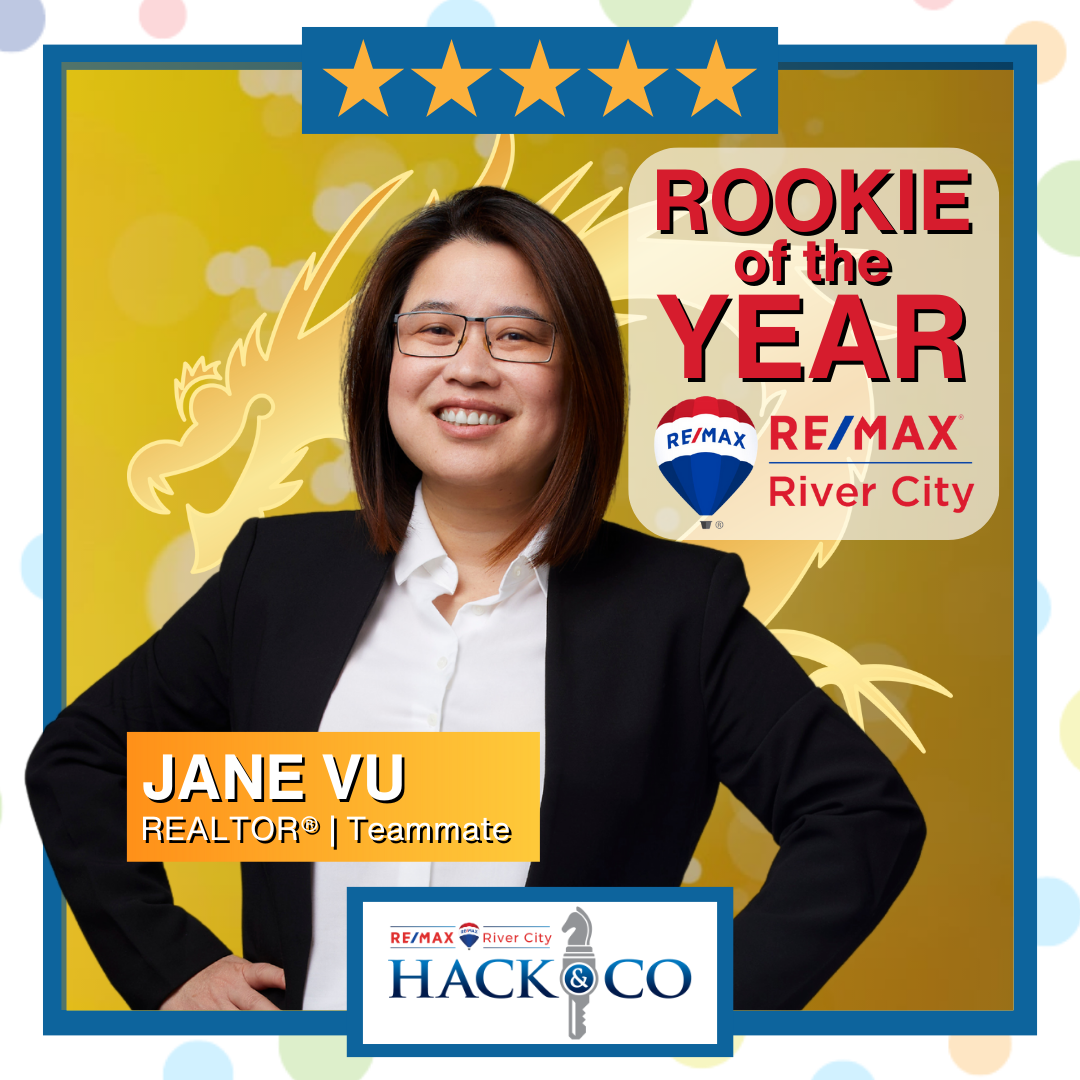The Aspiring Agent's Guide to Becoming a REALTOR® in Alberta
Embarking on a new career path can be both invigorating and intense, especially when it comes to navigating the world of real estate. For those of you looking for options related to real estate schools and the process of getting your real estate license in Alberta you're in for an exciting journey filled with learning, growth, and, yes—paperwork! But fear not; this comprehensive guide will walk you through the steps you need to take to become a licensed real estate professional in Alberta.
Is Real Estate a Good Career Fit for You?
Real estate isn't for everyone, but if you think of the things that you find easy that other people think are hard you might be able to see some obvious elements that are not a good fit or that you were fit for when it comes to a real estate career. If being comfortable conversing with strangers, dealing with day-to-day variability, and helping people through stress and conflict are things that you find you have an affinity for then you are likely headed in the right direction in becoming a Licensed REALTOR®.
Another factor, is elements outside of work. Compared to most careers, real estate would be considered higher risk and higher variability. That means that the real estate industry may not pair well with people that have elements of their personal life that are higher variability like a spouse that works shift work in a family that has kids or a partner that has a variable income. There are ways to overcome these challenges, but there's already so much to overcome in starting out in real estate that it's good to be real with yourself about how your strengths and weaknesses may serve or inhibit the career you're dependent on.
Are You Financially Prepared for a Real Estate Journey?
Let's break down the financial element into the amount of money it takes for the pre licensing education to be in a position to sell your first property (Startup Costs) and the amount of money you'll need each month your in real estate before you get paid (Burn Rate).
The recommendation based on the timeline of earnings in real estate is enough money to cover all the initial costs and six months of burn rate. It would be recommended that you always replenish this six months of burn rate to offset the volatility and seasonality of real estate without being dependent on credit.
Startup Cost Formula:
Licensing Courses Cost + Registration Costs = Startup Costs
Licensing & Registration Cost Summary:
It’s recommended to budget for $6,000=>$8,000 depending on the time of year and number of number of area's of practice you choose to do.
This includes
RECA Application Fee and Registration of License
Real Estate Courses
Fundamentals of Real Estate
Areas of Practice:
Residential Real Estate
Commercial Real Estate
Rural Real Estate
Property Management
REIX Levy and Initial Year (Errors and Omissions Insurance)
CREA Initiation Fees & Membership (Canadian Real Estate Association)
AREA Initiation Fees & Membership (Alberta Real Estate Association)
RAE Membership (REALTORS Association of Edmonton)
Keys to Success (Mandatory Course)
Keypad Rental (Access to Keyboxes for Showing Property)
Burn Rate Formula:
Monthly Business Costs + Monthly Lifestyle Costs = Burn Rate
This can vary wildly so you'll need to find out more by interviewing teams and brokerages to complete this.
Business Cost Summary:
$260/month to stay licensed
the monthly calculation of $3,100 in annual fees and dues from the various real estate associations
Brokerage & Team Fees
Brokerage and Team Fees can range widely because each team and brokerage is independently owned and operated and the services they provide could be as little as a place to hold your license to a full marketing, professional coaching, unlicensed assistants, office space and client management systems.
A range based on anecdotal evidence may be $200 to $2,000 per month if you were paying direct fees as an individual or it could be a percentage of your income based on commissions earned.
Additional Business Expenses
When you think of everything that you see real estate agents do or have there is often a tied initial cost and maintenance fee.
Here are some of the things we didn't include in the burn rate that are part of common strategies that we didn't include above and that may or may not be part of a team or brokerage package:
Professional Headshots
Personalized Websites
Social Media Marketing
Listing Marketing
Lawn Signs
Professional Photos
Board Rooms to meet clients in
Office Space
Laptop Computer
Coaching/Mentorship
When you consider top agents in the marketplace, many of them are using over 50% of their total revenue earned on operations and marketing costs which can be over $50,000 per month. You may not be looking to start at competing at the top of the market, but you do have to compete at some point in the market to stay in business so it's important to understand that people are competing using money and time.
The reason this is important is because whether or not you split your earnings with a team or brokerage that is running parts of your business, you'll need to split your earnings with you running your business.
Lifestyle Costs
All the costs it takes for you to be a valuable, contributing member of your household. Even if a partner is willing to support you, it's important to set a target at a sustainable amount that wouldn't require the support of others. There's enough pressure in real estate without someone else betting on your outcome.
Household Costs:
Mortgage/Rent
Insurance
Taxes
Utilities
Vehicle Costs
Payments
Insurance (You'll need a $2M liability policy as an agent)
Fuel
Maintenance
Personal Costs
Food
Clothing (Professional Apparel)
Hygiene
Health
Kids
Everything they need
Childcare required to be competitive in real estate
Click here to download our Financial Readiness Calculator.
Timeline of Commissions
If you were to meet someone today, based on anecdotal evidence, if everything went well you would be paid two to three months from now. For every day you didn't meet someone that wants to take action in real estate or didn't have enough skill to earn the person you met as a client you would add that to the timeline. So the minimum would be two months and if nothing has happened for six months it may be time to choose another career.
Considering Dual Careers in Real Estate
The decision to venture into real estate while maintaining a current career—becoming a "dual career agent"—requires careful consideration. On one hand, the stability of an existing job provides financial security as you build your real estate experience. On the other, real estate demands time and availability, often during conventional working hours, to meet client needs and seize opportunities. Clients generally prefer agents who are dedicated full-time to real estate, as it reassures them of the agent's commitment and availability.
One of the things that should be considered in the decision of whether or not to sell real estate is alsw what kind of real estate you want to sell. When it comes to scheduling, particularly around another career, both commercial and residential real estate have challenges. Commercial real estate is often seen as being primarily during the day on weekdays but residential real estate often happens when clients are available on their non-working hours with preparation for those appointments happening during regular business hours.
Balancing two careers is especially challenging in industries where responsiveness can make or break a deal. For those with jobs that offer unconventional hours or flexibility—such as evening shifts, freelance gigs, or remote work—a dual career path might be feasible, at least temporarily. However, it's essential to recognize that being a weekend warrior in the aggressive field of real estate can place one at a disadvantage. Competing with full-time, fully available agents means that dual career agents must be exceptionally organized, proactive, and willing to make sacrifices to ensure client satisfaction and success.
Timing the Transition into Real Estate
Timing is everything when considering a transition into a real estate career. It's advisable to initiate this journey early in the year. This strategic timing allows for comprehensive training before the spring season, which is recognized as the real estate market's prime time. Stepping into real estate requires preparation to exploit the high frequency of opportunities that historically peak during the months of April, May, and June.
For those currently employed in another field, it's prudent to plan for approximately three months to dedicate to the real estate course, which is available as an online course, on top of job responsibilities. This means that an aspiring real estate agent might aim to begin coursework in September. Such a timeline ensures that by January, the individual is ready to resign from their current role, thus fully dedicating themselves to real estate just as the market is gaining momentum. This approach allows for gaining essential experience – getting your feet wet – and positioning oneself advantageously to secure clients when the spring rush commences. It is this period when the efforts to build a reputation, network, and understand the mechanics of the industry begin to pay off, and the chances of a successful transition into full-time real estate are highest.
The Licensing Steps
Basic Eligibility Requirements:
Before you can proceed with your application, the Real Estate Council of Alberta (RECA) mandates adherence to several prerequisites. You must:
Be 18 or older
Have the legal capacity to study and work in Canada
Provide acceptable forms of specific government-issued identification
Hold a Canadian high school diploma or an equivalent qualification (e.g., a post-secondary diploma or university degree)
Demonstrate proficiency in the English language
If these requirements are met, initiate your application process by visiting www.myreca.ca, where you can create an account. Follow the instructions to submit your enrollment application and apply for eligibility, which includes a non-refundable fee of $100 CAD.
You will need to secure a Certified Criminal Record Check (CCRC) searching for Canadian Criminal Records, distinct from a vulnerable sector search, conducted by the Royal Canadian Mounted Police (RCMP). You should do this as early in the process as you can because there have been delays. For locations where you can get your fingerprints taken for this purpose, please click here for a list of accredited fingerprinting companies.
Selecting a Real Estate Course Provider
Finding the right real estate course provider to do your online course or in person course is a crucial step on your journey to becoming a licensed agent. The Real Estate Council of Alberta (RECA) offers a list of recognized course providers that cater to a variety of learning styles and schedules and can lead you through the pre licensing courses. To choose a provider that aligns with your needs, consider the following factors:
Accreditation: Ensure the provider is recognized by RECA. Visit RECA's Recognized Course Providers page for a complete list.
Learning Format: Some providers offer online courses, while others provide in-person learning. Determine your preferred learning style and available schedule before making a decision.
Course Content: Look for comprehensive course material that covers all aspects of real estate transactions and law that you'll need to master for the exam.
Support Services: Supportive services such as tutoring, exam preparation help, and customer service can be highly beneficial. Consider the level of support each provider offers.
Reputation: Research reviews and testimonials from former students to gauge the provider’s reputation and the success rate of its graduates.
Fees and Additional Costs: Course fees vary by provider, and there may be additional costs for materials or exam retakes. Compare prices to ensure the chosen provider fits your budget.
Once you've evaluated these factors, reach out to the course providers to ask any outstanding questions. This will help you make an informed decision and choose the provider that offers the best chance of success in your real estate career.
Success stories are prevalent when examining the experiences of HACK&CO Teammates with the real estate licensing process, particularly when leveraging the resources provided by RELO and AREA. The collective feedback affirms that both AREA and RELO's comprehensive training materials, practice exams, and supportive community have been instrumental in their high success rates. This favourable outcome has been consistently observed among colleagues who have taken full advantage of the learning tools and supplemental support offered, highlighting the effectiveness of RELO in preparing candidates for a thriving career in real estate.
Approaching the Course with Strategy
An effective strategy that our team has experienced success with involves engaging with practice exams early in the course of study. Before diving deeply into the course materials, it is beneficial to take a preliminary practice exam related to your specific area of practice. This tactic provides several advantages:
Contextual Learning: Encountering the types of questions and scenarios you’ll face on the actual exam can help contextualize the course material, allowing you to focus on key areas during your study.
Familiarity with Exam Format: Understanding the format and wording of the exam questions early on removes the element of surprise, making you more comfortable when it's time to take the real test.
Identifying Strengths and Weaknesses: Initial practice exams highlight personal strengths and knowledge gaps, guiding you on where to allocate your study efforts more efficiently.
Many of our teammates can attest to the efficacy of the practice exam first approach, as they noticed significantly improved results after incorporating practice exams into their study routine. The early exposure to exam conditions and question styles made them more adept at applying the course material in a way that was directly relevant to their licensing exams. To facilitate this approach, we highly recommend sourcing practice exams from reputable providers or leveraging any practice resources that your course may offer.
Course 1: Fundamentals of Real Estate
The journey to become a REALTOR® starts with Course 1: Fundamentals of Real Estate. This is the module that provides you with the foundational knowledge and skills needed to navigate the more advanced concepts as you progress through the licensing process. According to experiences shared by HACK&CO Teammates, this introductory course generally requires half the time investment compared to the second course, which focuses on the Practice of Residential Real Estate.
Course 1 is meticulously structured to introduce the fundamentals of property law, land use regulations, property valuation, and the intricacies of real estate transactions. A crucial element of this course is understanding the ethical responsibilities and legal requirements involved in the real estate field.
Completion time for this course typically ranges between 70 to 125 hours, offering flexibility to accommodate the schedules of aspiring agents. The cost, which may include textbooks and additional study materials, spans from $800 to $1,250, varying by the course provider you select. Since these providers are continually evolving, with new options slated to be added in the future, prospective students are encouraged to regularly consult RECA's list of recognized course providers to stay updated on available educational opportunities.
Choosing the right provider for the Fundamentals of Real Estate course is just as important as the material itself, as the quality of instruction can significantly affect your comprehension and retention of the subjects covered. It's advisable to start this first step with due diligence to ensure you set a solid foundation for your real estate licensing process.
Course 2: Choose an Area of Real Estate Practice
After solidifying your understanding of the basics with Course 1, you'll embark on the pivotal next step in Alberta's real estate licensing process: Course 2. This course requires you to select at least one specialization that fits your career interests. Among the available specializations, the Practice in Residential Real Estate is a critical one chosen by many and recommended as a fundamental area of expertise.
Practice of Residential Real Estate: This specialization equips you to serve individuals and families looking to buy and sell properties that they live in or as investments. Residential properties include single family homes, condo units, and country residential properties like acreages with some limitations. It delves into property law, negotiation techniques, and the nuances of residential transactions, offering a comprehensive overview of the housing market.
Practice of Commercial Real Estate: Catering to entrepreneurs, investors, and businesses, this area involves complex transactions including office spaces, retail locations, and industrial properties. A strong grasp of market analysis and investment strategies is paramount in this sector.
Practice of Rural Real Estate: Focused on agricultural lands, ranches, and rural properties, this niche demands an understanding of land use regulations, environmental considerations, and rural community dynamics. Properties that are likely to be under this sector would be rural properties that generate income,
Practice of Property Management: This avenue prepares you to manage residential, commercial, or industrial properties on behalf of owners, ensuring compliance with property laws, maintenance matters, and tenant relationships.
Each specialization covers approximately 70 to 100 hours of targeted learning and varies in cost between $400 to $2,000, depending on the educational provider. The choice of specialization not only determines the type of clientele you will work with but also shapes the trajectory of your real estate career. Precision in your area of practice enables you to offer valuable expertise to clients whose real estate interests align with your chosen field. Whether assisting with the acquisition of cozy homes, navigating the complexities of a skyscraper sale, guiding a farming operation expansion, or meticulously overseeing property operations, each practice area contributes to the rich tapestry of the real estate sector.
Preparing for Exams
For those who are firmly set on making the most of their study time, investing in a quality exam preparation guide is crucial. RECA provides an extensive Exam Preparation Guide that should be an integral part of your study plan. This guide offers detailed insights on preparing effectively for the exam, managing study time, and understanding the testing format. By incorporating this guide into your routine, you align your study efforts with the council's expectations, potentially increasing your chances of success significantly.
Choosing Your Approach to Real Estate
Embarking on a real estate career necessitates thought on the type of approach that aligns with your personal ambitions and working style. As you delve deeper into real estate principles and practices, it is wise to consider various career paths. You should strongly consider speaking with seasoned agents and brokers to gather perspectives on the industry. Conversations with these professionals provide invaluable insights into what it's like to build a business from scratch, the benefits of structured mentorship programs, or the advantages of plugging into an established team model.
Building a business from scratch is an option for those with a strong entrepreneurial spirit and the tenacity to cultivate a brand and clientele independently.
Structured mentorship can provide a guided, step-by-step path, which is excellent for newcomers seeking direction and accelerated learning from experienced mentors.
Joining a team offers a 'plug and play' model where you can leverage established systems, resources, and brand recognition to jumpstart your career.
Each path comes with its own set of pros, cons, and requirements. It's important to weigh these options carefully to determine which approach will best support your goals and growth in the industry. For insights into joining a real estate team and what you need to know, consider reading this informative blog: Joining a Real Estate Team: The Pros & Cons and What You Need to Know.
To gain a better understanding of how a supportive work environment can enhance your career, explore the opportunities at River City, where culture and collaboration are key: Why River City.
For those who are interested in a team that values innovation and exceptional client service, learn more about joining the HACK&CO team: Join the HACK&CO Team.
The direction you choose will shape your career trajectory, so take the time to research, reflect, and select the path that will bring you fulfillment and success in the dynamic world of real estate.
Success Stories
Success Story: Christian Bailey
Christian Bailey's journey in real estate is nothing short of inspiring. A former member of the Canadian Armed Forces, Christian moved from Halifax to join HACK&CO as their very first teammate, bringing with him the discipline and drive honed during his military service. With a clear vision for his future, he set an ambitious goal to secure his financial independence through passive income from real estate investments within five years. Demonstrating remarkable dedication and business acumen, Christian achieved this milestone in just four years, surpassing expectations.
During his time at HACK&CO, Christian's work ethic and commitment to excellence propelled him to an outstanding level of success. He consistently ranked as the top teammate each year, driven by a genuine passion for helping his clients navigate the often-complex real estate landscape. His achievements and charismatic personality caught the attention of a broader audience, leading to an appearance as a real estate expert on an HGTV show.
Christian's story serves as a beacon of inspiration for aspiring real estate professionals. His tenure at HACK&CO is remembered for setting a high bar for excellence. Continuing his success, Christian returned to Halifax and remains a highly respected figure in the real estate community there, leveraging the skills and experience gained from his incredible journey.
Success Story: Anthony De Sousa
Since his start, Anthony De Sousa's ascent through the ranks of HACK&CO has been nothing short of meteoric. Hailed as the company's top teammate since 2021, Anthony originally joined the team as a humble sales assistant. However, his innate talent for real estate quickly became apparent. Prior to entering the field, Anthony leveraged his robust personal network, speaking with over 30 seasoned agents to understand his best starting point in the industry.
Anthony has always attributed his decision to start with HACK&CO to the team's reputation as an incubator for learning and professional growth. His instincts proved to be well-founded; under the mentorship and innovative culture at HACK&CO, he flourished spectacularly. Now, with over two hundred properties under his belt, Anthony's prowess in real estate is undeniable.
The accolades he has accumulated speak volumes: Anthony stands amongst the top 50 ranked agents in Edmonton on RankMyAgent.com, an impressive testament to his professional excellence and outstanding customer service. HACK&CO's recognition as a Top 50 team for RankMyAgent in all of Canada is a victory he shares, contributing significantly to the team's esteemed position through his unparalleled dedication and foresight.
Anthony's success story serves as an embodiment of what can be achieved through hard work and a willingness to embrace innovative approaches in a forward-thinking environment. His commitment to not just selling properties, but to genuinely finding value for his clients, aligns seamlessly with the pioneering spirit of HACK&CO as they build into the future.
Success Story: Jane Vu
The tale of Jane Vu's professional growth at HACK&CO is a truly commendable one, marked by a series of impressive milestones. Starting as an unlicensed assistant, she grasped the intricacies of real estate through diligent observation and hands-on experience. Jane's dedication to excellence was evident right from the outset and was quickly rewarded with a promotion to sales assistant.
Originally from Vietnam, Jane's relocation to Canada came with ambitions that would soon echo across Edmonton's real estate market. After becoming a Canadian citizen, she set a lofty goal for herself: to be recognized as the most eminent Vietnamese real estate agent in Edmonton. Jane's unparalleled work ethic and her ability to connect with her community through her bilingual skills propelled her to astounding success, culminating in an unprecedented record for production in her first official year with HACK&CO.
Her remarkable achievement did not go unnoticed as Jane Vu was honored with the "Rookie of the Year" award by RE/MAX River City. This prestigious accolade stands as a testament to the exceptional value she brings to her clients and the community at large. Jane's ability to navigate the nuances of the market for her Vietnamese clientele, coupled with her steadfast commitment to helping them find the perfect homes in Edmonton, are foundational to her burgeoning legacy. Her success at HACK&CO is not just a measure of her achievements but also a beacon for the possibilities that dedication and cultural connection can unlock in the ever-evolving world of real estate.



















